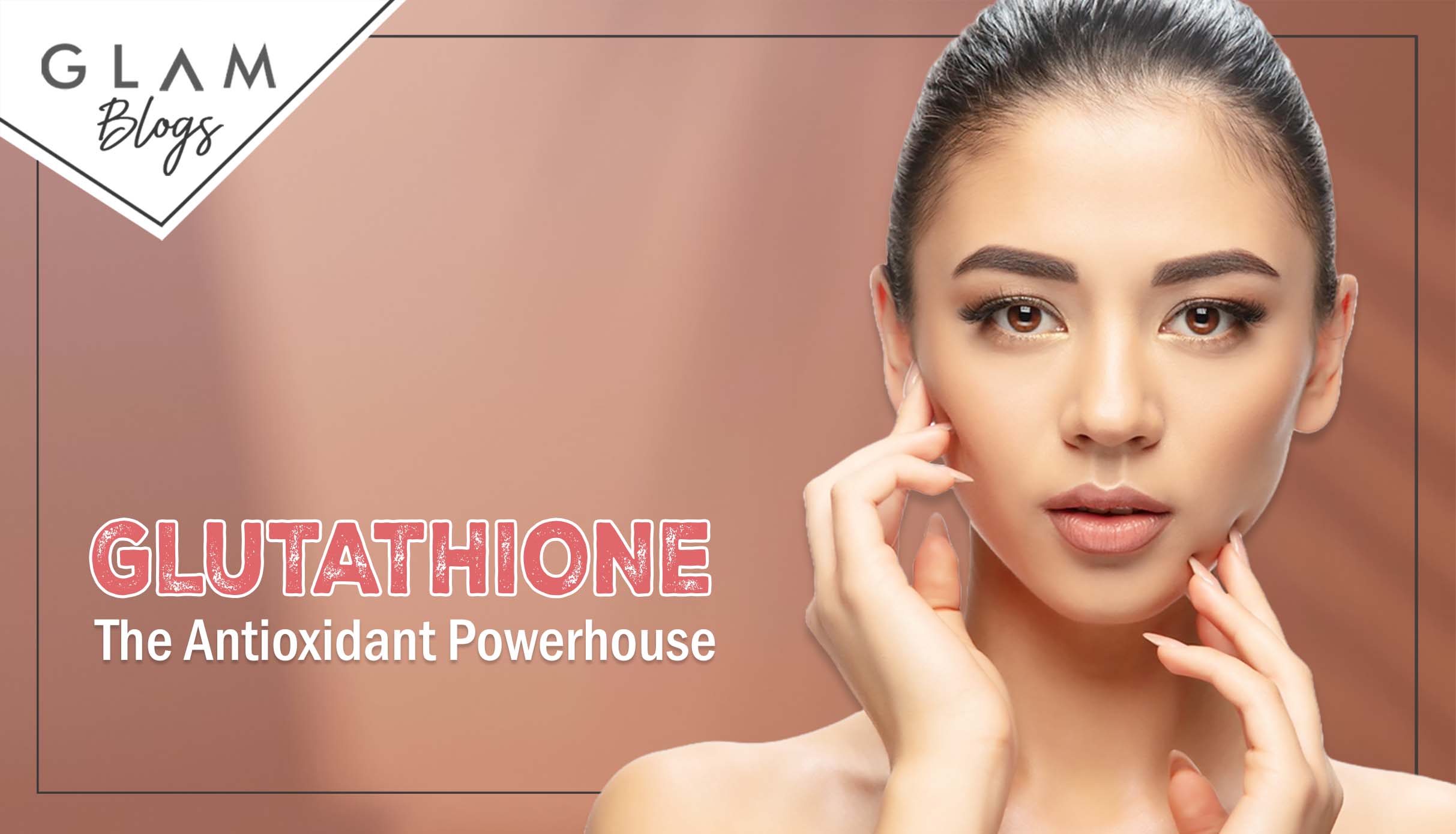
Glutathione: Benefits and Potential Side Effects
In the quest for health and wellness, many individuals are constantly on the lookout for supplements and treatments that can enhance their well-being. One such compound that has gained considerable attention in recent years is glutathione. Often referred to as the body's master antioxidant, glutathione plays a vital role in various physiological processes. In this article, we will delve into what glutathione is, its numerous benefits, potential side effects, and its applications in skincare and haircare, as well as the use of glutathione creams.
What is Glutathione?
Glutathione is a naturally occurring tripeptide composed of three amino acids: cysteine, glutamic acid, and glycine. It is found in virtually every cell of the human body and is considered one of the most important antioxidants. Antioxidants are substances that protect cells from damage caused by free radicals and oxidative stress. Glutathione's unique role lies in its ability to recycle and regenerate other antioxidants like vitamin C and vitamin E, making it essential for the body's defence against harmful molecules.
The Antioxidant Powerhouse
- Understanding Oxidative Stress and Its Impact on Health: Before diving deeper into glutathione's role, let's understand the concept of oxidative stress. It occurs when there's an imbalance between free radicals and antioxidants in the body, leading to cellular damage. Oxidative stress is implicated in a wide range of health issues, from cardiovascular diseases and cancer to neurodegenerative conditions like Alzheimer's disease.
- How Glutathione Functions as an Antioxidant: Glutathione works tirelessly to maintain this balance. It acts as a powerful antioxidant by donating electrons to neutralize free radicals, preventing them from causing harm. Moreover, glutathione can "recharge" other antioxidants like vitamins C and E, enhancing their effectiveness in combating oxidative stress.
Glutathione Deficiency
Understanding the causes, symptoms, and consequences of glutathione deficiency is crucial:
- Causes and Risk Factors: Factors like ageing, chronic illness, poor diet, and environmental toxins can deplete glutathione levels.
- Symptoms and Health Implications: Reduced glutathione levels are associated with increased susceptibility to oxidative stress, chronic diseases, and compromised immune function.
- Diagnosis and Treatment Options: Diagnosis typically involves blood tests to measure glutathione levels. Treatment options include lifestyle changes, dietary adjustments, and, in some cases, supplementation.
Glutathione Sources
- Dietary Sources of Glutathione: While some foods like fruits, vegetables, and certain meats contain glutathione, the molecule itself is not well-absorbed when ingested directly. Instead, consuming foods rich in its precursor amino acids, such as cysteine, can support your body's production of glutathione.
- The Body's Production of Glutathione: Our bodies have the remarkable ability to synthesize glutathione. It's produced within cells from its constituent amino acids. However, several factors, including age, genetics, and lifestyle, can influence our ability to produce sufficient glutathione.
- Supplements and Their Role in Increasing Glutathione Levels: To ensure optimal levels, some individuals turn to glutathione supplements. These supplements come in various forms, including oral capsules and intravenous injections. It's essential to consult with a healthcare professional before starting any supplementation regimen.
Boosting Glutathione Levels
To maintain optimal glutathione levels, consider the following:
- Lifestyle Modifications: Prioritize a balanced diet rich in cysteine-containing foods, regular exercise, and stress management to support natural glutathione production.
- Supplements and Therapies: If needed, consult a healthcare professional to determine the best approach to supplementation, which may include oral supplements or intravenous therapy.
- Potential Side Effects and Precautions: Always follow recommended dosages and consult with a healthcare provider to avoid potential side effects or interactions with other medications.
Glutathione Benefits
- Antioxidant Defense: As mentioned earlier, glutathione is a powerful antioxidant. It helps neutralize free radicals, preventing cellular damage and reducing the risk of chronic diseases, such as cancer, heart disease, and neurodegenerative disorders.
- Detoxification: Glutathione is a key player in the body's detoxification processes. It binds to toxins and heavy metals, facilitating their elimination from the body. This detoxification function is particularly vital in the liver, where glutathione is abundant.
- Immune System Support: Glutathione plays a crucial role in boosting the immune system. It helps in the production and activation of immune cells, enhancing the body's ability to fight infections.
- Anti-Aging: Glutathione has been touted as an anti-aging remedy due to its ability to combat oxidative stress and protect against the breakdown of collagen, which keeps the skin youthful and elastic.
- Improved Energy Levels: Some individuals report increased energy levels after glutathione supplementation. This is likely due to its role in supporting mitochondrial function, the energy-producing structures within cells.
Glutathione Side Effects
While glutathione offers numerous benefits, it's essential to be aware of potential side effects, especially when used in excess or without proper medical guidance:
- Allergic Reactions: Some people may experience allergic reactions to glutathione supplements, leading to symptoms like rash, itching, and swelling.
- Nausea and Stomach Upset: High doses of glutathione can sometimes cause digestive discomfort, including nausea and stomach cramps.
- Skin Lightening: In some cases, individuals taking glutathione for its skin-lightening properties have reported uneven skin tone or patches. This effect is more common when glutathione is taken in very high doses for an extended period.
- Respiratory Issues: There have been rare reports of respiratory distress associated with intravenous glutathione administration. This underscores the importance of seeking professional guidance when considering such treatments.
- Interaction with Medications: Glutathione supplements can potentially interact with certain medications, so it's crucial to consult with a healthcare provider before starting supplementation, especially if you are on medication.
Glutathione Uses for Skin
The desire for brighter, clearer, and more youthful-looking skin has driven the popularity of glutathione in the realm of skincare. Here are some of the key uses and benefits of glutathione for the skin:
- Skin Lightening: Glutathione is often used as a skin-lightening agent. It is believed to inhibit the production of melanin, the pigment responsible for skin color, resulting in a lighter complexion.
- Acne and Blemish Reduction: Glutathione's antioxidant properties can help reduce inflammation and promote skin healing, making it a potential ally in the fight against acne and blemishes.
- Protection Against UV Damage: Glutathione's ability to neutralize free radicals makes it useful in protecting the skin from UV-induced damage and premature aging.
Glutathione Benefits for Hair
While glutathione is more commonly associated with skin health, it can also have positive effects on the hair:
- Hair Loss Prevention: Oxidative stress and inflammation can contribute to hair loss. Glutathione's antioxidant and anti-inflammatory properties may help in preventing hair loss and promoting hair growth.
- Healthy Scalp: A healthy scalp is essential for strong, lustrous hair. Glutathione's role in detoxification and immune support can contribute to scalp health.
Glutathione Side Effects on Skin and Hair
The use of glutathione for skin and hair benefits should be approached with caution, as side effects may occur:
- Skin Discoloration: Excessive use of glutathione for skin lightening can lead to uneven skin tone, with some areas becoming lighter than others.
- Hair Texture Changes: Some individuals have reported changes in hair texture, such as increased softness or straightening, as a result of glutathione use. This effect may not be desirable for those with naturally curly or wavy hair.
- Irritation: Topical glutathione products can sometimes cause skin irritation, redness, or itching. It's essential to perform a patch test before using such products.
Glutathione Cream Benefits
Glutathione creams are topical products that contain glutathione as one of the active ingredients. These creams are marketed for their skin-lightening and anti-aging properties. Here are some potential benefits of using glutathione creams:
- Skin Brightening: Glutathione creams can help improve skin tone and reduce the appearance of dark spots, leading to a brighter complexion.
- Anti-Aging: The antioxidant properties of glutathione can help combat the signs of aging, such as fine lines and wrinkles.
- Moisturization: Many glutathione creams contain hydrating ingredients that can improve skin's moisture retention and overall texture.
Glutathione Cream Side Effects
While glutathione creams are generally considered safe for topical use, some individuals may experience mild side effects, such as:
- Skin Sensitivity: Some people may develop skin sensitivity or mild irritation when using glutathione creams. It's advisable to discontinue use if these symptoms persist.
- Breakouts: In rare cases, individuals with sensitive skin may experience breakouts or acne-like reactions when using glutathione creams.
Conclusion
Glutathione is a versatile compound with a wide range of benefits for the body, including its role as a potent antioxidant, detoxification agent, and immune system booster. It has gained popularity in skincare and haircare due to its potential to promote a brighter complexion, reduce skin blemishes, prevent hair loss, and improve hair health. However, it's crucial to approach glutathione supplementation, especially for skin and hair benefits, with caution. Potential side effects, such as skin discolouration hair texture changes, and irritation, should not be underestimated. Consulting a healthcare provider or dermatologist before starting any glutathione regimen is advisable to ensure that it is appropriate for your individual needs and health status.




1 comment
Helpful and excellent result
Kavita wavhal
Leave a comment
This site is protected by hCaptcha and the hCaptcha Privacy Policy and Terms of Service apply.